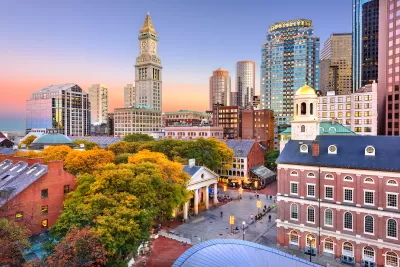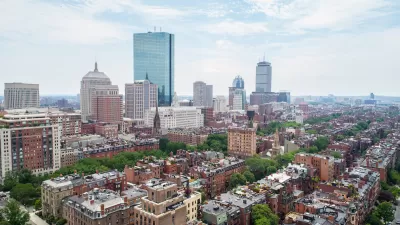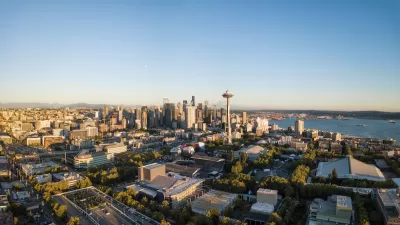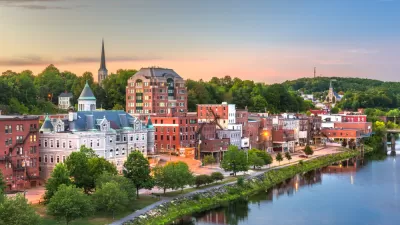The city was the first to tie fair housing requirements to zoning reform.

After three years, how is Boston’s approach to tie fair housing to zoning reform panning out? Kalena Thomhave seeks to answer this question in Smart Cities Dive.
The context: “In 2021, the city passed what may be the nation’s first effort to add fair housing requirements to its zoning code. The new policy requires developers of large projects to assess the projects’ possible impacts on area residents historically discriminated against and take steps to reduce those impacts.”
“The Boston Interagency Fair Housing Development Committee, which has representatives from multiple city agencies, reviews a developer’s project assessment and its chosen interventions as well as the city’s own displacement risk data.” Developers can negotiate with the committee to finalize their requirements and can choose from a variety of mitigating measures that include “building a greater share of affordable units, building more family-size units or providing more units to residents with housing vouchers.”
To date, 43 large projects have triggered the ordinance. According to Karina Oliver-Milchman, director of policy development and research for the Mayor’s Office of Housing, “it is difficult to explicitly measure success, though development projects are indeed changing as a result of the ordinance process.”
FULL STORY: Boston was the first major city to pair fair housing with zoning. How’s it going?

Trump Administration Could Effectively End Housing Voucher Program
Federal officials are eyeing major cuts to the Section 8 program that helps millions of low-income households pay rent.

Planetizen Federal Action Tracker
A weekly monitor of how Trump’s orders and actions are impacting planners and planning in America.

The 120 Year Old Tiny Home Villages That Sheltered San Francisco’s Earthquake Refugees
More than a century ago, San Francisco mobilized to house thousands of residents displaced by the 1906 earthquake. Could their strategy offer a model for the present?

HSR Reaches Key Settlement in Northern California City
The state’s high-speed rail authority reached an agreement with Millbrae, a key city on the train’s proposed route to San Francisco.

Washington State Legislature Passes Parking Reform Bill
A bill that would limit parking requirements for new developments is headed to the governor’s desk.

Missouri Law Would Ban Protections for Housing Voucher Users
A state law seeks to overturn source-of-income discrimination bans passed by several Missouri cities.
Urban Design for Planners 1: Software Tools
This six-course series explores essential urban design concepts using open source software and equips planners with the tools they need to participate fully in the urban design process.
Planning for Universal Design
Learn the tools for implementing Universal Design in planning regulations.
Ada County Highway District
Clanton & Associates, Inc.
Jessamine County Fiscal Court
Institute for Housing and Urban Development Studies (IHS)
City of Grandview
Harvard GSD Executive Education
Toledo-Lucas County Plan Commissions
Salt Lake City
NYU Wagner Graduate School of Public Service





























